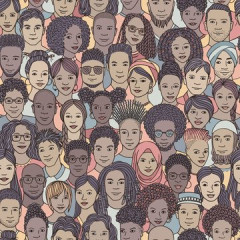Is celebrity casting having a detrimental effect on British theatre?
In a time where celebrity let downs are drastically on the rise, we seriously need to consider if celebrity casting is having a detrimental effect on British theatre. It must be appreciated that in many cases it is a financial necessity, but a balance needs to be found. With over 50% of actors living below the poverty line (WhatsOnStage), you can imagine their frustration when someone talentless skips the hierarchy and is put straight into a starring role, solely for their name. Perhaps talentless is too harsh, it is about relevant talent. Craig Revel Horward, a fantastic dancer, was cast as Miss Hanigan in Annie. There was laughter every time he came on stage in drag, totally contradictory to the nature of the character. It is clear to me that this was a decision made in attempt to sell tickets. I will always appreciate a fresh approach to a regularly staged show, but where the villain of the story becomes a comedic character it alters the writer’s intentions dramatically. I must also mention the recent replacement of Laura Baldwin by Pussycat Doll, Ashley Roberts as Dawn in Waitress. ‘@westendproducer’ said on Twitter, “Upsetting. That one fab person is replaced, and still has to remain in the theatre but on ‘standby’, while someone else with a ‘celeb’ status is asked to play their role – simply to put bums on seats. I hear another cast member has resigned as a result. Sad sign of the business.” Should celebrity casting stop all together? Or is it a necessary evil?
When celebrity names draw in a bigger and more diverse audience, many may ask “what’s the harm?”. The harm is when they don’t have the ability to see it through. EastEnders star, Martine McCutcheon’s health got the better of her after a successful start to her role of Eliza Doolittle at The National Theatre. She performed 63 times, her first cover performed 64 times and her second cover, a further 5 times, giving her an attendance rate of just 48%. Cameron Mackintosh was furious, saying in an article by ‘Cheap Theatre Tickets’ that she just “wasn’t up to the role.” This highlights the distinction between stage and screen acting, and the differences in the training. As Fiona in Shrek, Amanda Holden disappointed hundreds of fans when she reduced from 8 to 6 shows a week, because she just didn’t have the stamina for the part. Many people book expensive tickets just to be able to see the headlining celebrity, so there is huge disappointment when they get let down. This then leads to the theatre getting complaints, damaging their reputation, and having to give out loads of refunds. This ends up being contradictory to the key advantages of celebrity casting.
It is however, impossible to ignore the financial advantages. Big names mean big sales. A celebrity has the ability to fill an auditorium and, in many cases, is the reason for a show or even a theatre remaining open. Therefore, their name headlining the show can create jobs for the hundreds of people it takes to put on a west end production, making it a financial necessity. Where it is a question of whether the show continues, it seems that it would have a detrimental effect on British theatre to not use celebrity casting to put bums on seats. At the end of the day, it is called show business. Without the business element, there is no show.
Another advantage of celebrity casting is the new audiences it can pull in, particularly young people. So many people will pay top prices to see their idol in the flesh. This can be used as a chance for people to get close to a before, unreachable star. Despite being there just for the stars name it could spark their interest in seeing more shows if they enjoy the whole experience.
We must also consider, whether or not these big names actually have any talent? Andrew Flintoff, a cricketer, was cast in Fat Friends. It seems an insult to those who have spent years perfecting their craft to assume a sportsman with no acting experience can get up and perform. Sheena Easton’s portrayal of Dorothy Brock in 42nd Street has been described by Sarah Crompton, WhatsOnStage, as “a toddler walking a tightrope” as she staggered through her dialogue. It is only when she sang that her warmth and strength as a performer was shown. I think it is really important to note the distinction between someone who has never performed before, and someone who’s strengths don’t span the entire part but who is able to make up for it somewhere in their performance.
There are examples of celebrities really pulling it off. Amber Davies has exceeded expectations in 9-5 this year. I think she is the perfect example of positive celebrity casting, she has been through drama school, so has talent but her fame has come from elsewhere. She can reach a completely new target audience, be a strong headlining name, while still delivering the part well. David Tennant delivered a fantastic Hamlet, much contrasting in character to his time as Doctor Who. The clear difference between these two and the failed attempts at celebrity casting is that they both have a performance background.
Many theatre goers can relate to the sinking feeling that follows an announcement of a leads absence. People just can’t help but let out a deep sigh of disappointment when they hear that they will be seeing the understudy. The pressure on the standby actor is then to live up to the celebrity as well as the part, making their job twice as difficult. The term understudy makes everyone a critic, with the preconception that they are being short changed for second best, when regularly in cases of celebrity casting, the understudy can actually be better. An example being Matt Lucas’ understudy in Me and My Girl at Chichester Festival Theatre After Matt fell ill, his understudy nailed the role on press night and many said that he was far better suited to the part. Working at the theatre at the time, I heard first hand many people’s opinions of both actors.
I think that celebrity casting can actually be really disrespectful to those who have spent years training, have climbed the ladder from the bottom and are genuinely so talented. To work your whole life towards a goal that gets snapped away from you by someone less deserving, purely for financial gain and publicity is devastating. It is just so unfair to those relentlessly auditioning for parts and continuously being turned away or replaced to make way for a less experienced person, solely for their name.
In many cases I think there are very credible and vital advantages, but a line has been crossed. I believe a balance needs to be found with regards to celebrity casting, it is a question of where the line should be drawn, with talent as the final deciding factor. It has reached a point where almost every West End show is paired with a star’s name to attract patrons. My Instagram is flooded with excited announcements of new castings which must be disheartening to budding actors. A distinction needs to be recognised between performers and non-performers, there needs to be a certain level of skill achieved before an actor is replaced in a desperate bid to sell tickets. I think celebrity casting should be an absolute last resort after all other attempts have been made to sell the show. We need to find a balance to replace the current disequilibrium in our West End.
WhatsonStage- https://www.whatsonstage.com/london-theatre/news/freddie-flintoff-celebrity-casting-sarah-crompton-blog_43938.html
@westendproducer- https://twitter.com/?lang=en-gb
CheapTheatreTickets-https://www.cheaptheatretickets.com/the-drama-of-celebrity-casting/






Love that you've chosen this topic, Ella. It's really opened my eyes to another facet of theatre that I haven't considered before. What was the most surprising thing you learnt from this research?